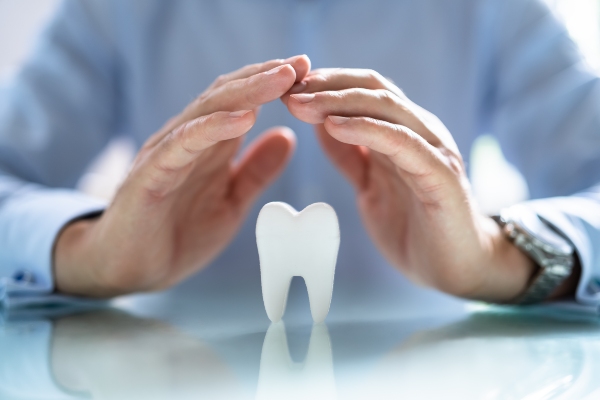 Restoring your smile with a dental implant can result in better oral function and health. This dental replacement fuses with the jawbone and gum tissue. It offers lasting stability with proper care and maintenance. Here are the details on how a dental implant can improve oral function and health.
Restoring your smile with a dental implant can result in better oral function and health. This dental replacement fuses with the jawbone and gum tissue. It offers lasting stability with proper care and maintenance. Here are the details on how a dental implant can improve oral function and health.
Enhances digestion
Research shows that digestion begins in the mouth. Efficient chewing breaks down food before it reaches the stomach. Tooth loss removes some of the important players in the mouth. This condition can affect one’s general health.
A dental implant can restore the ability to chew. The restoration lets the wearer eat different types of food. Doing so increases one’s daily nutrient intake. Having a stable dental replacement improves one’s eating experience and general health.
Preserves jawbone density
Studies reveal that the jawbone around the dental socket begins to weaken right after the loss of a tooth. This deterioration causes the jawbone to lose its density. Support for the rest of the teeth and facial structures will become insufficient. The individual will experience a sunken appearance. This condition will result in sagging skin and wrinkles.
A dental implant can replace an entire dental structure. The titanium rod will serve as a dental root that stimulates the jawbone. This stimulation will signal the body to send nutrients to the jawbone for tissue repair and cell regeneration. The jawbone will then regain its former thickness and density. This improvement will support the dental implant and the rest of the natural teeth.
Lowers the risk of gum disease and tooth decay
A missing tooth exposes the dental space and the remaining teeth to bad bacteria. The dental socket can easily become the entry point for these microorganisms to infect the gum tissue. This complication can develop into gum disease, which risks one’s oral health. A dental implant can fill the space left by a missing tooth. It can lower one’s risk of periodontal disease.
Protects adjacent teeth
Tooth loss can result in misalignment and bite problems. A dental bridge is a restoration that needs to shave off the enamel of abutment teeth. This modification is necessary for placing custom-fit dental crowns over them to support the pontics. Dentures have metal clasps that attach to adjacent natural teeth. This attachment can scrape the enamel of these teeth. Bad bacteria can enter these teeth and cause damage.
A dental implant does not need to attach to the neighboring teeth for support. It does not need nearby teeth to stay in place. It can stand alone because its titanium rod fuses with the jawbone and gum tissue. This restoration preserves the integrity and alignment of the neighboring natural teeth. It also lowers one’s risk of developing oral issues.
Stabilizes the bite for a long time
Studies reveal that proper care and maintenance can make a dental implant last for decades. This restoration is a good investment for one’s dental health. It gives any individual peace of mind that the bite will always be stable and durable. An implant can also reduce one’s need for any dental work in the future.
A dental implant can help you achieve better oral health
Losing a tooth can weaken your ability to chew, which can affect your oral and general health. A dental implant can complete your smile. It can also strengthen your oral functions. Working with your periodontist can make your new restoration last for years.
Request an appointment or call Charles E. Dyer IV, DDS, MS, PC at 281-213-0900 for an appointment in our Cypress office.
Related Posts
Flipper teeth are removable dental appliances that can quickly replace missing teeth. On the other hand, dental implants permanently replace tooth roots to support long-term, irremovable tooth replacements. While flipper teeth can address immediate concerns, dental implants provide a more natural and lasting tooth replacement that supports oral health, jawbone strength, and facial appearance. Knowing…
Dental implants play a crucial role in maintaining and improving periodontic health. They are a long-lasting and reliable solution for replacing missing teeth, providing both functional and aesthetic benefits. When teeth are lost, the surrounding structures in the mouth, including the gums and jawbone, are negatively impacted. Dental implants not only restore the appearance of…
Dental implants are a long-term solution for replacing missing teeth, providing both functional and aesthetic benefits. However, when individuals choose not to pursue dental implants after losing teeth, they may experience a range of negative effects on their oral and periodontic health. The absence of dental implants can lead to issues that affect the health…
